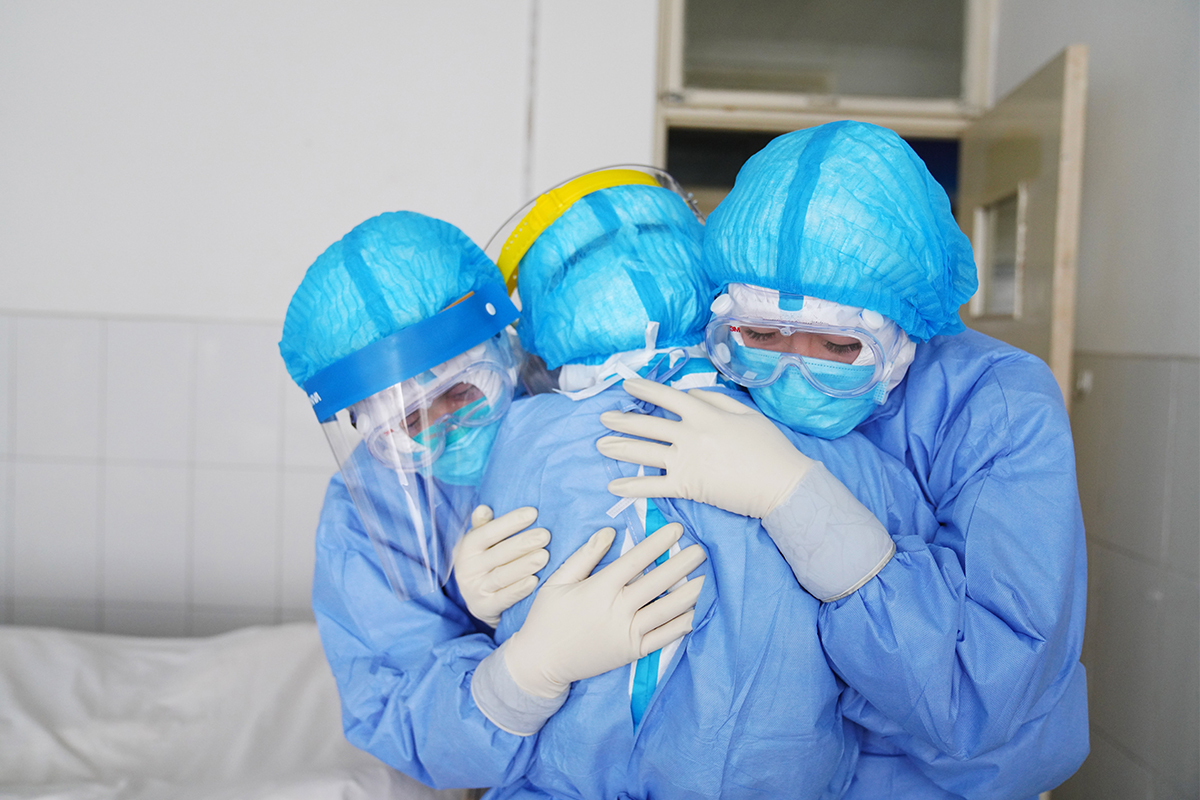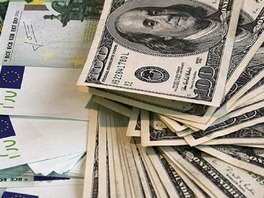The number of individuals infected with the COVID-19 Wuhan coronavirus has grown to 60 thousand people, and more than 1360 people died. In particular, there has recently been the first Japanese victim. A woman that never left the country has died. The officials of Hubei Province - the epicenter of the disease - resigned on February 12, following a sudden outbreak of the disease, which took 242 lives in one day.
30-year-old John Au, a resident of Hong Kong, talked to Apostrophe about the development of the protest movement, incompetence of the authorities and life without entertainment.
- How are you feeling now?
- I'm fine. We've been home for two weeks, hardly contacting any other people. So overall, we're fine.
- What about the protests? Are they going on?
- As a matter of fact, they are, but they took another form. There were mass protests in Hong Kong last year, involving thousands of people. But now, because of the epidemic, people don't want to gather in big crowds because it's easy to catch the virus. As a result, only a small number of people are protesting. Since the outbreak of the virus in China, many people in Hong Kong have taken to the streets to force our government to close the border with China to prevent those potentially infected from reaching us. But the government has refused to entirely close the border with China. They explained their decision saying we are closely connected. Consequently, protests against transport links with China continue.
Some doctors and nurses have also joined the strike. They are demanding not only closing the border but also receiving more medical equipment, especially medical masks. It is very difficult to buy them in Hong Kong, they are supplied from other countries. Because of the strike, hospitals have been short of doctors for a week.
In addition, some buildings in Hong Kong are used by the government as quarantine centers - places where people that might be infected are housed. Some of these centers are located too close to residential areas. So people are also protesting for the government to stop using these buildings as quarantine centers.
 Prices for masks in Hong Kong
Prices for masks in Hong Kong
- Why can't the government buy masks from other countries?
- Because other countries are also affected by the coronavirus, and they've stopped sending masks to Hong Kong. And we don't have factories to produce them ourselves. As a result, surgical masks are very expensive (the average price now is about $10.3 for 50 masks - "Apostrophe").
- How do the protesters protect themselves?
- In Hong Kong, anyone who goes outside wears a surgical mask. And during last year's protests, we used gas masks because the police always used tear gas. So some people use gas masks, which can protect from the virus.
- On February 4, one man died in Hong Kong. How did the public mood change?
- Is the situation in Hong Kong similar to that of the post-apocalypse - the deserted streets, etc?
- (laughs) No, we don't have an apocalyptic look like Wuhan. In other major Chinese cities like Beijing, for example, there are empty streets now, you can't see people anywhere. But the streets are not empty in Hong Kong, as very few people have been infected here. Yes, there are fewer people on the streets. We can go out, but we sit at home and use the internet and phone for work. Public areas - swimming pools, libraries, sports centers, etc - are closed. Some stores have closed or shortened their working hours. But people go out to buy something from the shop or to visit a restaurant. At the same time, they are much more careful because they realize the risks.
- How many cases have been reported in Hong Kong?
- I think it's more than 40 today. I think it's 46. One person died.
- I spoke to a man from the Chinese city of Xi'an and he told me that the Chinese government checks every apartment, every family every day to see if they're sick. Do you have the same situation?
- They don't check everyone - just those who've been to China in the past two weeks. Now everyone who comes from there - no matter for what reason - is quarantined. People who have had contact with a sick person should stay at home for two weeks. The government doesn't check others. In China, they do check every family, as it's much more serious.

- So you're at home for two weeks now. Do you live alone or with someone?
- I live with my girlfriend. But we only go out to buy food. Most of the time we avoid crowds because the virus is easy to spread there. We don't go to the cinema, and we're not working from the office.
- And how does it feel to stay home so long?
- (laughs) It's a bit annoying. You know, during Chinese New Year's Eve, we usually visit friends, meet families. But this time, because of the disease, we can't celebrate like this. You don't go out for a drink at the bar, you don't go to the cinema. So it's a little boring, but it's generally fine. You can watch TV or play games.
- How about your job?
- I work in the technology sector - I manage websites. So I use a tablet that the company gave me. In terms of work, nothing has changed - I can work from home.
- And as for the enterprises - how big the losses can be?
- Most stores are still open. Most of the restaurants are still open. But if one of the employees of the restaurant gets sick, it will have to close for two weeks, as it means waiters and cooks might get infected. But you're right. For example, many weddings are canceled - in Hong Kong, they usually rent a restaurant at a hotel and celebrate there.
There was a case when one big family - 15-20 people - had a family dinner. One member of this family went to China and came back, and he infected about 10 people during this dinner. So now the government told us not to have dinner with a crowd of people. We only eat with close relatives.
We have Disneyland and Ocean Park (a huge oceanarium with marine mammals, as well as themed attractions - "Apostrophe"), but they are closed. So the epidemic is hurting certain companies.
- Are the Chinese government's measures effective enough? What could have been done better?
- And what is the government doing now?
- Events have a certain effect. The central government is trying to stop traffic between cities and forbid people to go out. I think it's effective, but in some cities, like Wuhan, there are too many sick people. Hospitals can't take everyone. So I think a lot of patients stay at home and the hospitals lack doctors and medicine. Probably more people will die in Wuhan by the end of February.
- How will the epidemic affect the crisis in Hong Kong and Beijing relations?
- I think the disease will help the Hong Kong protest. Above all, the virus is weakening China. Their economic growth has slowed down before the disease even appeared, but now factories are closed, cities are blocked, and the Chinese economy is suffering losses. If China gets weaker, its impact on Hong Kong won't be so strong.
Secondly, the virus has shown that Hong Kong's government is ineffective and weak. We see how long it takes to close the border with China because we know our mayor is being governed by Beijing. She's afraid it will make the Chinese leadership angry.
Moreover, this outbreak has shown that China controls many international organizations. The World Health Organization is not too critical of China right now. It is very slow to react to the disease. It shows China's influence in the world, and its growth. Other countries must stop it because it threatens the world's security. The Coronavirus has already demonstrated that China is very dangerous. Just like 17 years ago during the SAAS outbreak, China was trying to hide the problem. Now, however, there is a much closer connection between countries. Many people travel around the world and trying to hide the truth - or making WHO hide the truth - is a serious threat to the world. Other governments, including Ukraine, need to be very careful and understand that Beijing cannot be trusted.






